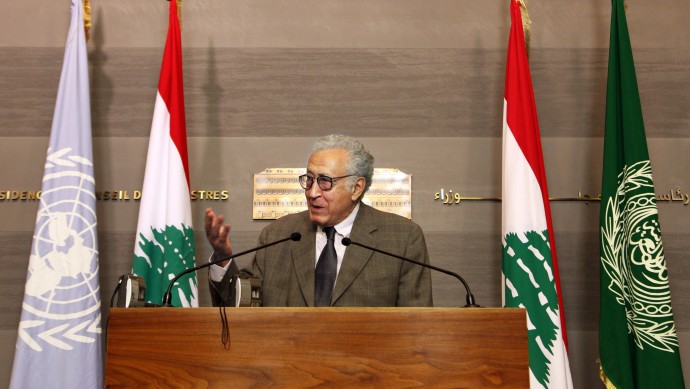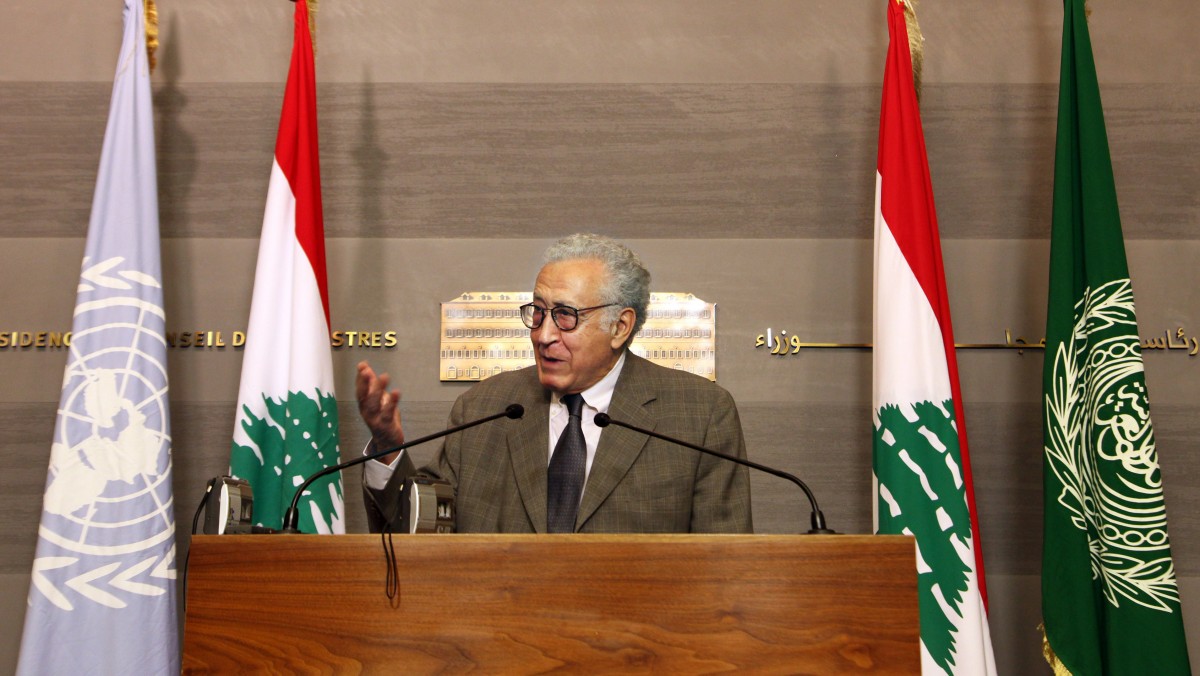
(NEW YORK) MintPress – The timing of the latest act of violence in the Syrian capital was ominous: A powerful bomb exploded in Damascus just hours after a government spokesman said that U.N.-Arab League Special Representative for Syria Lakhdar Brahimi will meet with Foreign Minister Walid Muallem on Saturday to discuss the ongoing bloodshed.
On Oct. 15, Brahimi called for a temporary ceasefire during the four-day Islamic Eid al-Adha holiday starting on Oct. 26, telling reporters, “I am going to Syria. This appeal we made to our Syrian brothers, whether in the government or against the government, to stop fighting in the three or four days of the Eid next week.”
He said it would be “a microscopic step on the road to solving the Syrian crisis.”
A previous ceasefire in April collapsed after just a few days, with each side blaming the other. U.N. envoy Kofi Annan resigned his post in frustration a few months later because of the failure of what he said had become a “mission impossible.”
Since then, the 19-month conflict pitting troops loyal to President Bashar al-Assad against a loosely-organised rebel force trying to end his 12-year-old rule has intensified, especially with a growing number of al-Qaida jihadists infiltrating the opposition.
“The Syrian people, on both sides, are burying some 100 people a day,” said Brahimi. “Can we not ask that this toll falls for this holiday? This will not be a happy holiday for the Syrians, but we should at least strive to make it less sad.
“If the Syrian government accepts, and I understand there is hope, and if the opposition accepts,” a truce would be a step “toward a more global ceasefire” he added.
Show of support
In a rare display of agreement on any issue related to Syria, Arab League chief Nabil al-Arabi, who met Brahimi on Tuesday, backed the call for an Eid truce, and Foreign Minister Ahmet Davutoglu of Turkey, one of Assad’s harshest critics, said Ankara supports Brahimi’s proposal.
“In principle, we consider a ceasefire … to be declared during the Eid al-Adha as useful,” Davutoglu told television station A Haber.
Davutoglu said the plan was also backed by major Syrian ally Iran, adding that Turkish Prime Minister Recep Tayyip Erdogan and Iranian President Mahmoud Ahmadinejad had discussed it at a regional summit in Azerbaijan earlier this week.
Damascus says it is ready to discuss the truce with Brahimi, while the opposition Syrian National Council said it expects the rebel Free Syrian Army to reciprocate any halt to the violence, but that the government must act first.
Last ditch attempt at diplomacy
Brahimi’s visit to Damascus will be the last stop of his tour of regional countries on the issue of Syria. He has already met with officials in Iran, Iraq, Saudi Arabia, Turkey, Egypt and Lebanon to try to find a solution.
Brahimi has focused his efforts on “convincing all parties to accept a temporary and limited objective as a first step toward a solution, and as a litmus test of all parties’ intentions,” Al-Baath newspaper, Syria’s ruling party mouthpiece, said on Thursday.
“The envoy is making a thorough and prudent effort to overcome the obstacles (in implementing) a diplomacy of small steps,” it added.
Western states have been calling for the Syrian president to step down, but Russia and China are strongly opposed to Assad’s ouster.
The Syrian government for its part says that the chaos is being orchestrated from outside the country, and there are reports that a very large number of the armed militants are foreign nationals supported by the predominantly Sunni Muslim countries of Saudi Arabia and Qatar. Assad is a member of the Alawite sect, an offshoot of Shiite Islam.
Cross-border conflicts
Meanwhile, in the Lebanese capital Beirut on Wednesday, Brahimi warned that the fighting in Syria could affect the entire region.
“This crisis cannot remain confined within Syrian territory,” he told reporters. “Either it is solved, or it gets worse … and sets (the region) ablaze.”
His words came just hours before reports of clashes across the Syria-Lebanon border. A Lebanese security official said armed men in Lebanon used machine guns to shoot into Syrian territory, and the Syrian army responded with rounds fired from tanks and machine guns.
Ever since the outbreak of the anti-regime revolt in Syria, there have been numerous exchanges of fire across the border.
Lebanon has made two official complaints against the Syrian authorities over territorial violations, while Assad’s regime accuses Lebanon of allowing arms and fighters to enter into Syria illegally.
The conflict has at times also spilled over into neighbouring Turkey. Bilateral tensions have heated up, with Ankara taking an increasingly strident line since a shell fired from inside Syria killed five Turks on Oct. 3.
A mortar bomb fired from Syria struck Turkish territory on Wednesday but caused no casualties, Turkish NTV reported.
Turkey struck back with retaliatory fire, as it has done systematically since the first incident, Anatolia news agency said.
Path to peace?
Not surprisingly there are doubts that even if a truce is agreed inside Syria, it can be maintained.
“I don’t know whether they will all agree at the higher level or not on the ceasefire proposal, but on the ground you have pro and anti-regime forces that do not respond to any authority,” said Syrian Observatory for Human Rights director Rami Abdel Rahman.
“There would most likely be a problem of implementing the truce,” he added. The Observatory calculates some 33,000 people have died in the uprising, among them 2,300 children.
Still, Brahimi remains optimistic about this latest attempt to move away from the brink of disaster.
“This is not the political process or the solution required to the Syrian crisis,” he said earlier this week. “This is an appeal to the Syrians themselves that they stop fighting and observe it themselves.”
In the meantime, expect a lot more violence in the days leading up to Eid al-Adha.


